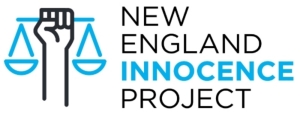
New England Innocence Project
Image: newenglandinnocence.org
Madhu Kumar, most recently a scientific advisor with Wilson Sonsini Goodrich & Rosati, is an experienced biologist who has assisted the law firm with patent applications within the fields of pharmaceuticals, life sciences, and computers. In addition, Madhu Kumar has volunteered his time as a consultant for the New England Innocence Project.
Wrongful convictions can be devastating to the innocent party as well as to their families. In addition, when a person is convicted of a crime they didn’t commit, justice is averted and the public is at risk, as the guilty party is still free to commit additional crimes. The New England Innocence Project (NEIP) is a pro bono legal organization that exists to help people who have claims of innocence in New England. In addition to the small legal staff at NEIP, interns from area law schools and professionals that volunteer their scientific and technical expertise work diligently to help reverse wrongful convictions. To date, the efforts of the organization have led to 39 exonerations.
Eyewitness misidentification is one of the leading causes of wrongful convictions. Though eyewitness testimony is extremely convincing, it is not always reliable. In fact, eyewitness testimony was a major factor in over 75 percent of the first 255 post-conviction DNA based exonerations.
Invalidated forensic science is also a major factor in wrongful convictions. Hair, fiber, and bite-mark analysis are all examples of invalidated forensic science. This type of evidence has played a role in over 50 percent of the convictions that were later reversed due to DNA evidence.
The staff at the New England Innocence Project, as well as professional volunteers and interns, are all committed to continuing their efforts to prove the innocence of those who are wrongly convicted. The re-examination of scientific evidence, in addition to DNA technologies, has made exoneration possible for many who have been wrongly accused.